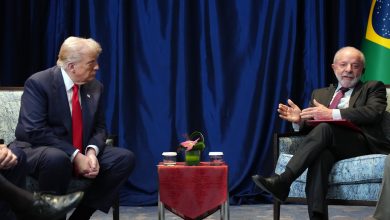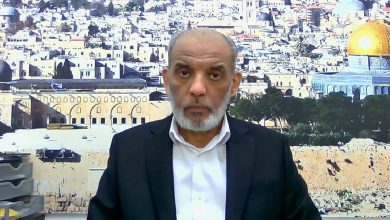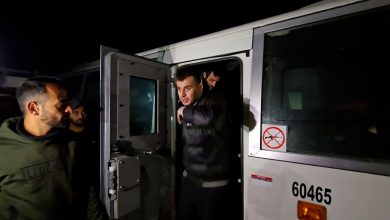Explore the journey of liberation movements worldwide, once branded as “terrorist” but later vindicated by history, including the Palestinian resistance and the legacy of Omar Mukhtar.
The Global Narrative of Liberation Movements: From Vilification to Vindication
Throughout history, numerous global liberation movements have faced accusations of “terrorism,” only to be later recognized as legitimate struggles for freedom and self-determination. This pattern is not foreign to the Palestinian resistance, which has been subjected to similar vilification efforts by Israel and its Western allies.
Turkish President Recep Tayyip Erdogan recently made a bold statement, asserting that “Hamas is not a terrorist organization, but a liberation group, and its members are freedom fighters protecting their land and citizens.” This declaration challenges the narrative pushed by Israel and its supporters, who have long attempted to demonize the Palestinian resistance.
Labeling any liberation movement as “terrorist” often precedes the most heinous violations against its members and the people they represent. This includes indiscriminate killings, torture, the use of internationally banned weapons, forced displacement, and even acts that amount to genocide, as witnessed in the tragic history of the Native Americans.
The situation in the densely populated Gaza Strip, with its civilian bombings, killing of children and women, and targeting of infrastructure with tons of highly destructive bombs, was preceded by a media campaign aimed at conditioning the global public to accept massacres that were once universally condemned.
The demonization of the Islamic Resistance Movement (Hamas) as a terrorist organization, akin to the Islamic State, or the dehumanization of Palestinians as “human animals,” has been part of this narrative. Israeli Defense Minister Yoav Gallant’s statement, “We are fighting human animals and act accordingly,” was labeled by Human Rights Watch as a “call to commit war crimes.”
However, such crimes are not without precedent. The French colonial forces in Algeria, the Italian colonial forces in Libya, and the American occupation in Vietnam have all committed similar atrocities.
Omar Mukhtar, known as the “Lion of the Desert,” is a striking example. He led the Libyan resistance against Italian occupation for 20 years (1911-1931). After his capture and subsequent execution on September 16, 1931, in front of 20,000 locals and prisoners, Mukhtar transformed from a “rebel” into a symbol and legend of resistance and liberation, not only in the eyes of Libyans but also globally, including among his former colonizers.
In a gesture of reconciliation, on October 16, 2021, the Italian Consul General Carlo Batori laid flowers on Mukhtar’s tomb in Benghazi, expressing regret for the suffering caused by the Italian colonial regime.
Omar Mukhtar’s legacy lives on, with streets in several global cities, including Gaza, named after him. The 1981 historical epic film “Lion of the Desert,” starring Anthony Quinn, continues to captivate audiences with its portrayal of the Libyan people’s struggle, highlighting the atrocities they endured, such as civilian killings, displacement of Bedouins, and the use of chemical weapons and indiscriminate aerial bombing of villages for the first time in history.
During the first 20 years of Italian occupation in Libya, a quarter of the population of Cyrenaica, then numbering 250,000, was killed, with many displaced to concentration camps where they succumbed to disease and hardship.
Israel’s current actions in Gaza seem to echo this brutal colonial past, aiming to kill and forcibly displace Palestinians from the territory.
The case of Algeria is similarly poignant. Algerian President Abdelmadjid Tebboune likened the labeling of Palestinians as “terrorists” to the way French colonizers described Algerian revolutionaries during the War of Independence (1954-1962), emphasizing that “Palestinians are not terrorists and will never be… Defending one’s right, land, and homeland does not constitute terrorism.”
The Algerian revolutionary Larbi Ben M’hidi, when criticized by the French for using traditional bombs hidden in baskets and women’s handbags, famously retorted, “Give us your planes, and we’ll give you our baskets.”
More than half a century later, the debate continues, as seen in a 2012 discussion between Algerian activist Zohra Drif Bitat, who participated in the “basket bombings,” and French philosopher Bernard-Henri Lévy. Bitat defended their actions as fighting the colonizer with “the means available” despite Lévy’s criticism of their “inhumane” methods.
The Algerian people paid a heavy price for their freedom, with 1.5 million martyrs lost in less than eight years, a staggering number given the population of only 6 million at the time of independence, compared to the 23,652 French military casualties.
The Algerian support for their revolutionaries was “bloody,” with French forces leveling entire villages and displacing inhabitants to prevent any logistical support for the rebels.
These historical narratives of liberation, often tainted with accusations of terrorism, eventually find their rightful place in the annals of history as legitimate struggles for freedom and justice. As these stories continue to unfold, they remind us of the complex and often painful paths toward sovereignty and self-determination.
For more insights and historical perspectives, visit dzwatch.net, your portal for understanding the dynamics of global liberation movements and their lasting impact on our world today.



